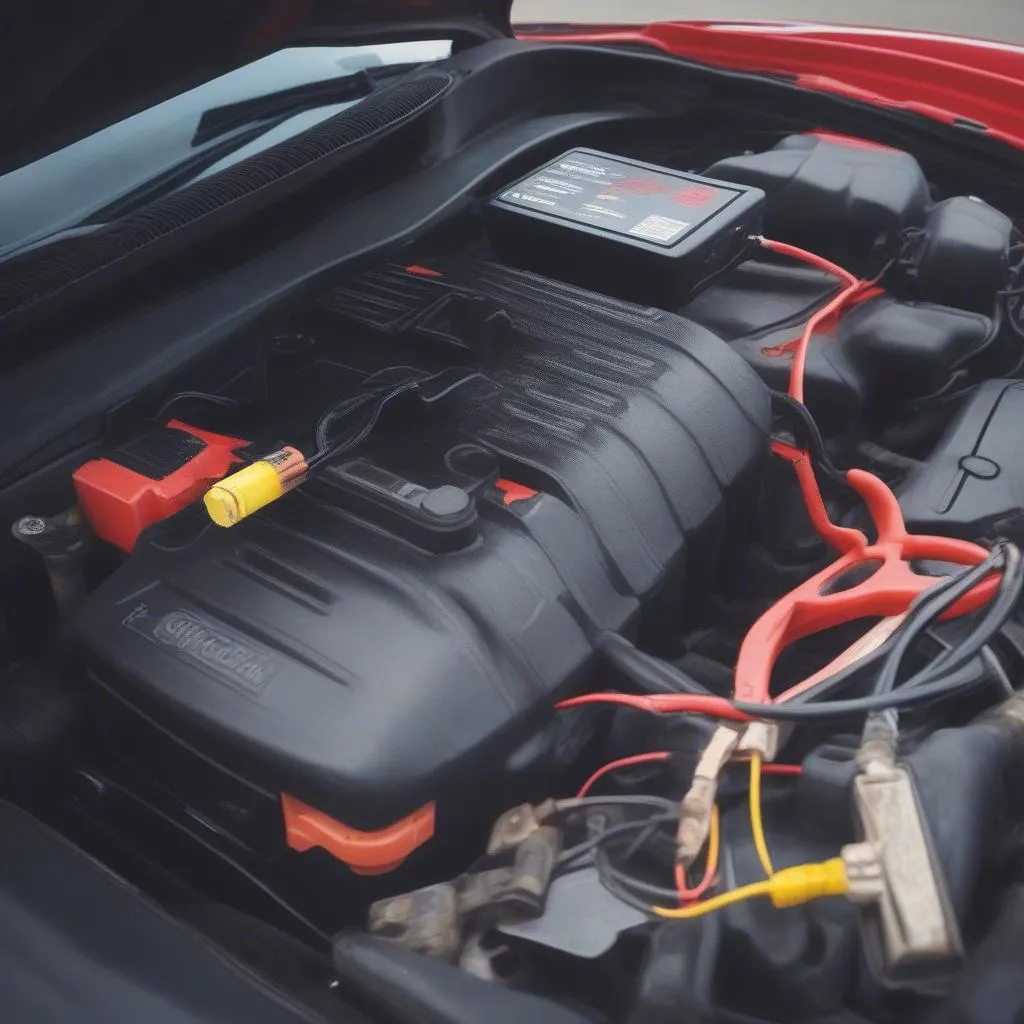Imagine this: you’re running late for work, you hop into your trusty 2015 Honda Accord, turn the key in the ignition, and…nothing. Dead silence. Your heart sinks. “Why won’t my car start?” you ask yourself, frantically checking your watch.
Experiencing a car that won’t start can be incredibly frustrating. It’s a universal fear for drivers, and understanding the reasons behind this common problem can save you time, money, and a whole lot of stress. In this comprehensive guide, we’ll delve into the various reasons why your car might be refusing to cooperate and equip you with the knowledge to get back on the road quickly.
What Does It Mean When Your Car Won’t Start?
Before we jump into the specifics, it’s important to clarify what “won’t start” actually means.
- The engine cranks but doesn’t turn over: You hear a clicking or whirring sound when you turn the key, indicating your starter is working, but the engine doesn’t come to life.
- The engine doesn’t crank at all: You turn the key, and there’s complete silence. No clicking, no whirring, just eerie quiet.
Each scenario points towards different potential culprits, and understanding these differences is the first step in diagnosing your car troubles.
Common Reasons Why Your Car Won’t Start
From simple battery issues to more complex electrical or fuel system problems, here are some of the most common reasons your car might be giving you the silent treatment:
1. Dead Battery
This is the most frequent offender. Your car battery provides the jolt of electricity needed to start the engine. If it’s drained, your car won’t even try to turn over. This could be due to:
- Leaving your headlights or interior lights on overnight.
- Extreme temperatures: Both hot and cold weather can impact battery performance.
- Old age: Batteries have a limited lifespan and will eventually need replacement.
How to tell if it’s the battery: You’ll likely hear a single, slow click when turning the key, and your headlights will be dim or non-existent.
2. Faulty Starter
The starter motor is responsible for cranking the engine to initiate the combustion process. If it’s failing, the engine won’t turn over even with a healthy battery.
How to tell if it’s the starter: You might hear a rapid clicking sound when turning the key, or a grinding noise if the starter is engaging but the engine isn’t turning.
3. Fuel System Problems
Without fuel, your engine is going nowhere fast. Potential issues include:
- Empty fuel tank: This might seem obvious, but it happens! Always double-check your gauge.
- Clogged fuel filter: A dirty filter restricts fuel flow to the engine.
- Faulty fuel pump: The pump is responsible for delivering fuel from the tank to the engine.
How to tell if it’s a fuel problem: The engine might crank normally but not start, or it may sputter and die shortly after starting.
4. Ignition System Malfunction
The ignition system provides the spark needed to ignite the air-fuel mixture in the engine cylinders. Issues can arise with:
- Faulty spark plugs: Worn-out or fouled spark plugs won’t produce a strong enough spark.
- Bad ignition coils: Coils amplify the battery’s voltage to generate the spark.
- Malfunctioning crankshaft position sensor: This sensor tells the ignition system when to fire the spark plugs.
How to tell if it’s an ignition problem: The engine might crank but not start, or it may backfire.
5. Other Electrical Gremlins
Beyond the battery and ignition, other electrical components can cause starting problems:
- Loose or corroded battery terminals: A poor connection hinders electricity flow.
- Blown fuses or faulty relays: These protect various electrical circuits and can disable critical components.
- Faulty alternator: While not directly related to starting, a bad alternator won’t charge your battery, eventually leading to a no-start situation.
How to tell if it’s an electrical problem: You might experience flickering dashboard lights, dimming headlights, or other electrical oddities.


